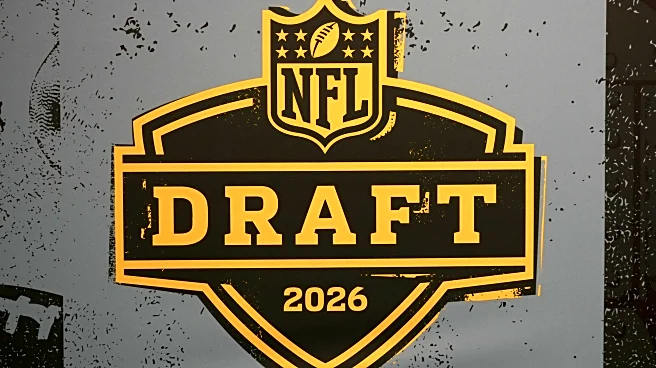What's Happening?
A network of nearly 90 TikTok accounts has been discovered using artificial intelligence to create fake versions of well-known Spanish-language journalists, spreading false information online. These accounts have utilized AI-generated avatars of prominent figures such as Jorge Ramos, a renowned Latino journalist, to disseminate fabricated news stories. The false narratives included claims about President Trump's family and other divisive topics. The accounts were identified by Alexios Mantzarlis, director of the Security, Trust, and Safety Initiative at Cornell Tech, who found that these AI avatars were used to front stories on immigration and conspiracy theories. TikTok has since shut down these accounts after being alerted to the issue.
Why It's Important?
The use of AI to create deepfake videos poses significant risks to public trust and information integrity. By impersonating trusted journalists, these accounts can mislead audiences, particularly Spanish-speaking communities in the U.S., potentially influencing public opinion and sowing confusion. The ability to generate realistic AI avatars makes it easier for malicious actors to spread misinformation, which can have real-world consequences, such as influencing political views or causing social unrest. This development highlights the urgent need for robust regulations and technological solutions to combat the misuse of AI in spreading false information.
What's Next?
As AI technology continues to advance, social media platforms like TikTok may face increasing challenges in identifying and removing deceptive content. TikTok has stated its commitment to protecting its platform from harmful misinformation, but the persistence of such accounts suggests that more proactive measures may be necessary. Stakeholders, including tech companies, policymakers, and civil society, may need to collaborate on developing strategies to address the ethical and security implications of AI-generated content. Additionally, there may be calls for increased transparency and accountability from platforms hosting user-generated content.
Beyond the Headlines
The ethical implications of using AI to create deepfakes extend beyond misinformation. This technology raises questions about consent, privacy, and the potential for identity theft. As AI-generated content becomes more sophisticated, distinguishing between real and fake information will become increasingly difficult, challenging the media's role in providing accurate news. Furthermore, the monetization of such content through platforms like TikTok's Creator Rewards Program suggests a financial incentive for creating sensationalist and misleading content, complicating efforts to maintain information integrity.










